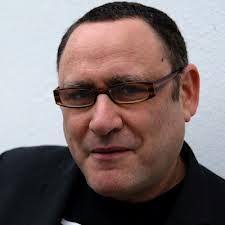By Gilad Atzmon
Most commentators on Israeli politics fail to see that notions of Left and Right are pretty much irrelevant to the understanding of Israeli politics. Israel defines itself as the Jewish State and, as the years pass, Israel does indeed become more and more Jewish. Naftali Bennett, who, for a while, appeared to be the rising star of the current election, realised this all too well. He re-invented Jewish Home, a political party that celebrates the Israeli aspiration to fulfill his or her true Jewish destiny – He promised his followers that they can live as chosen’s in their Jew-only state, regardless of ethical or moral concerns.
But then most, if not all, Jewish participants in the Israeli political game are committed to the ‘Jewish State’ dream. Of course they differ on some minor practical and pragmatic issues, but on the basics, they clearly agree. Here is an old Israeli joke: ‘an Israeli settler suggests to his lefty friend “Next summer we should put all Arabs on buses and get them out of our land”. Lefty: “Okay, but make sure the buses are air-conditioned.”
In Israel there are no hawks or doves. Instead, all we have is a mild debate between a few interpretations of Jewish tribalism, nationalism and supremacy. Some Jews want to be surrounded by towering ghetto walls – they like it, it’s cosy, it feels safe – others prefer to rely on the IDF power of deterrence. Some would support the excessive use White Phosphorous, others would like to see Iran wiped.
The assumption that there is political division in Israel is just a myth that the goyim are happy to buy into because it gives the impression of the possibility of political change and even spiritual transformation. But the grave truth is that, when it comes to the real fundamentals, Israelis are pretty much united: Labour leader Shelly Yachimovich and war criminal Tzipi Livni were both among those who rushed to support Netanyahu’s Operation Pillar of Cloud. Yair Lapid, the leader of the second biggest Israeli party, also identified as a centrist left, wouldn’t refuse a ministerial job by Benjamin Netanyahu. Meretz which, though a Zionist party, is the only Jewish party in Israel that has even a trace of ethical, universal thinking and values of equality, still comprises a mere 6 Knesset members out of 110 Jewish MKs.
So If we want to grasp Israeli politics, we need to bin our 19th century archaic terminologies of Left and Right and start to dig into the real culture and ideology that drives the Jewish State. Israel, with not a single Jewish party that encompasses empathy towards Palestinians in its political agenda, defies the very notion of universal equality. It is concerned solely with the interests of the chosen people and the results of the Israeli election confirms this. All we see is a vacuous competition between different Judeo-centric narratives.
The Wandering Who? A Study Of Jewish Identity Politics, the lobby, the power and Jewish ‘progressive’ spin in particular

Gilad Atzmon is an Israeli-born British jazz saxophonist, novelist, political activist and writer.
Atzmon’s album Exile was BBC jazz album of the year in 2003. Playing over 100 dates a year,[4] he has been called “surely the hardest-gigging man in British jazz.” His albums, of which he has recorded nine to date, often explore the music of the Middle East and political themes. He has described himself as a “devoted political artist.” He supports the Palestinian right of return and the one-state solution in the Israeli-Palestinian conflict.
His criticisms of Zionism, Jewish identity, and Judaism, as well as his controversial views on The Holocaust and Jewish history have led to allegations of antisemitism from both Zionists and anti-Zionists. A profile in The Guardian in 2009 which described Atzmon as “one of London’s finest saxophonists” stated: “It is Atzmon’s blunt anti-Zionism rather than his music that has given him an international profile, particularly in the Arab world, where his essays are widely read.”
His new book The Wandering Who? is now availble at Amazon.com
ATTENTION READERS
We See The World From All Sides and Want YOU To Be Fully InformedIn fact, intentional disinformation is a disgraceful scourge in media today. So to assuage any possible errant incorrect information posted herein, we strongly encourage you to seek corroboration from other non-VT sources before forming an educated opinion.
About VT - Policies & Disclosures - Comment Policy



